As Donald Trump made clear, smart businesses know only idiots pay tax
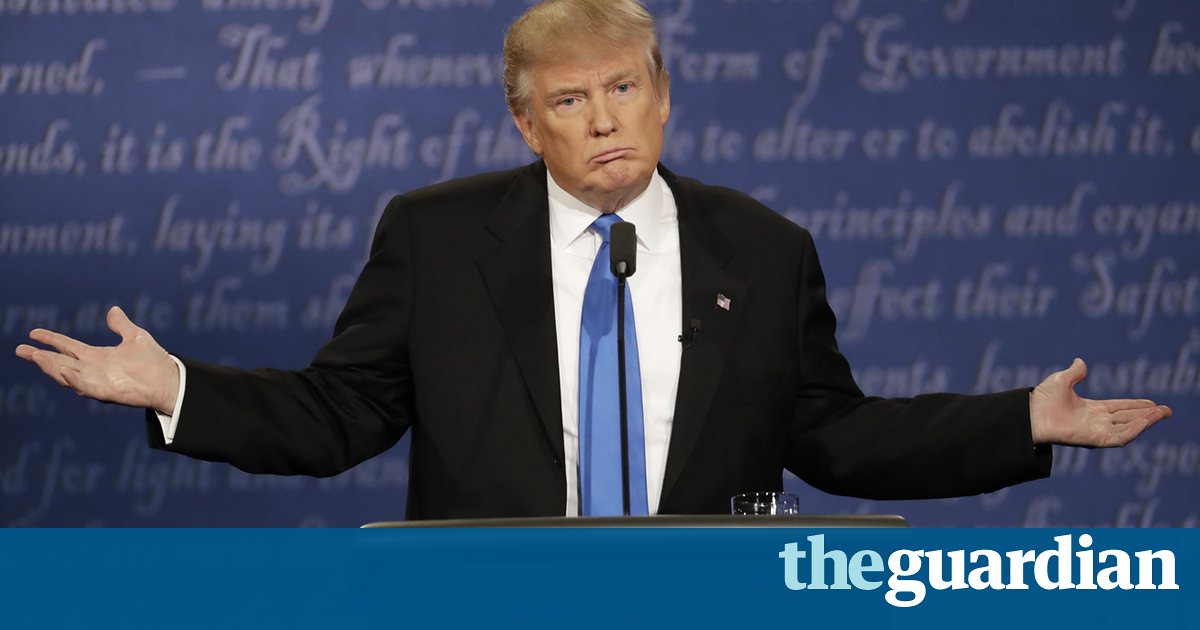
The revelation that the US presidential candidate paid no federal taxes for 18 years will come as no surprise to the global corporations who funnel billions through tax havens
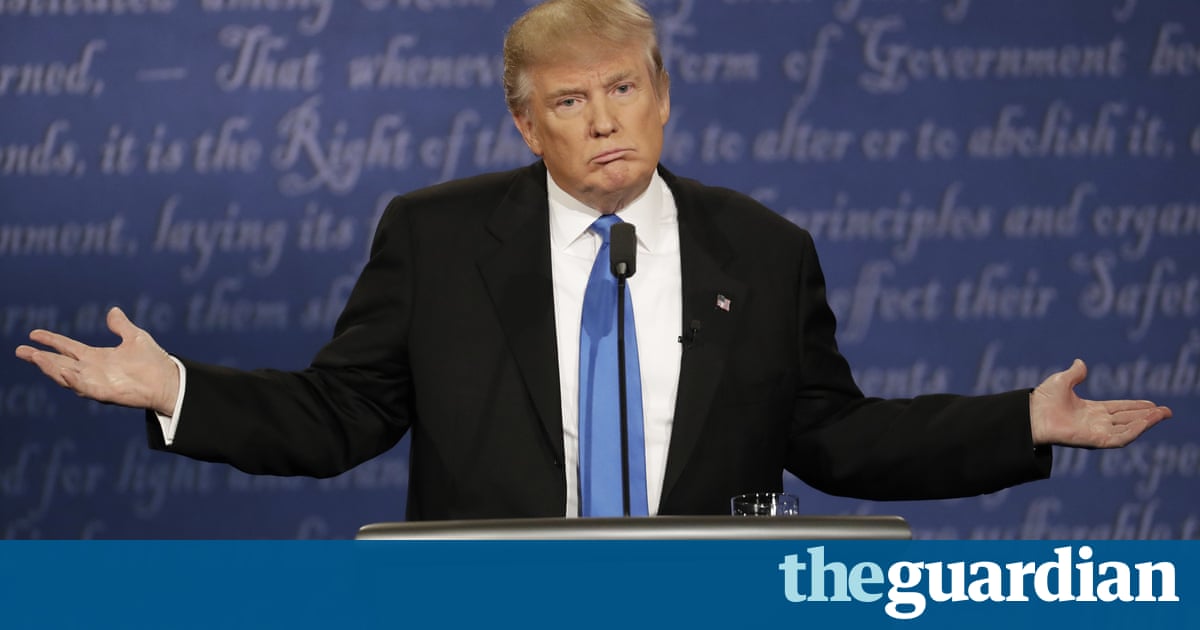
It was one of the highlights of an unedifying US presidential race. The subject: Donald Trumps tax returns. Hammered by Hillary Clinton over the disclosure that hed paid no federal tax, possibly for 18 years, Trump was unable to restrain himself.
There was no apology. That would have been out of character. Instead, the Republican nominee blurted out four words: That makes me smart. For once Trump serial liar and alleged serial groper had inadvertently revealed a great truth.
In the 21st century those who dutifully pay taxes are dupes. We are the losers in a modern game in which only smart people, as Trump indelicately put it, know the rules. In fact, the rich and powerful quietly exited from the business of paying tax a long time ago.
The evidence is all around. A new study of Americas leading Fortune 500 companies reveals that 367 of them some 73% have at least one or more subsidiaries in tax havens. Some have hundreds. This allows them to legally ship profits offshore.
In Britain, meanwhile, it emerged that eBay paid just 1.1m in tax last year, despite telling US investors that the UK was its second largest market, generating revenues of 1.1bn. The cash originating in the UK flows to a parent company in Switzerland.
The mind-boggling scale of the problem is laid bare in a slew of books and reports that reveal the way in which multinational companies have excused themselves from paying vast amounts of tax.
The companies are a whos who of global brands: Apple, Nike, Google, Pepsi, Pfizer, Walmart, Goldman Sachs, and practically every other multinational in business.
The detail can be complicated, but the method is simple and legal. Companies set up subsidiaries in low or no-tax jurisdictions. These subsidiaries then charge the onshore parent for services or intellectual property or whatever, with the profits then funnelled legally offshore. US companies are only obliged to pay tax when they bring the money back. Which they dont.
The study of Americas Fortune 500 companies shows that they collectively avoid an estimated $100bn in federal taxes each year. The most popular tax haven is the Netherlands. Bermuda and the Cayman Islands are not far behind.
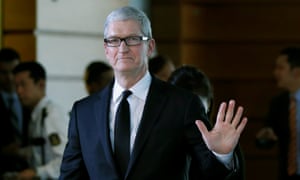
The worst offender is Apple. It has booked $214.9bn offshore, a sum greater than any other companys offshore cash pile. If these profits were held in the US they would incur $65.4bn in tax. The European Commission recently ordered Apple to pay Ireland $14.5 billion in back taxes; its Irish subsidiaries were paying an effective tax rate of 0.005%. Apples chief executive, Tim Cook, dismissed the ruling as political crap.
As a result it is ordinary taxpayers who have to pick up the tab. Last year George Osborne introduced a diverted profit tax aimed at large companies that shift income artificially offshore. Its unclear if the former chancellors initiative will work. Last weekend the Observer reported that Facebook had ended up with an 11.3m tax credit on its UK business. This is a company that made a global profit last year of $6.19bn.
The new books include a page-turning account of the investigation into the Panama Papers. And an enterprising account of the wealth management industry by a writer who spent two years undercover as a trainee.
Published last April, the Panama Papers were the fruits of a thrilling journalistic investigation. The papers some 11.5m leaked documents from the Panamanian law firm Mossack Fonseca give an unprecedented insight into the offshore world. They expose something obvious, previously hidden in plain sight. Namely that the global offshore industry centred in tax havens such as the British Virgin Islands was not, as had been thought, a shadowy but minor part of our economic system. Rather it was the system. It is this system that has allowed the burden of taxation to move inexorably from multinational corporations and the well-off to the unsmart: the dupes; you and me.
The journalists who unearthed this bitter truth were Bastian Obermayer and Frederik Obermaier of Germanys Sddeutsche Zeitung. (They are not related, but their German and international colleagues fondly nickname them the brothers Obermay/ier.) The paper, based in Munich, has an excellent track record of working on difficult and important investigations.
Reporters often get offered information, stuff. I know from previous investigations that this often turns out to be disappointing. As Obermayer recounts, in early 2015, late one evening, he received an anonymous message. It said: Hello. John Doe here. Interested in secret data? Obermayer replied: Always interested in secret data. What is it?
The it turned out to be bigger than anyone might have imagined. The source his or her identity remains unknown had got hold of Mossack Fonsecas entire internal database. The legal practice was founded in 1977 by an ambitious Panamanian lawyer and the son of a Waffen SS officer. It specialised in setting up anonymous offshore shell companies.
The sources motivation was simple. Like Edward Snowden, who lifted the lid on mass electronic surveillance, John Doe was a whistleblower. He/she wanted to expose the scale of injustice of the offshore tax system. Mossack Fonseca denies any wrongdoing.
The leak was an act of bravery and amounted to the biggest data dump ever, delivered in real-time instalments. We got a whopping 2.6 terabytes. This was far larger than the top-secret Snowden files or the diplomatic cables leaked in 2010 by an unhappy US army private, Chelsea Manning, which revealed Washingtons frank views of its global friends and enemies.
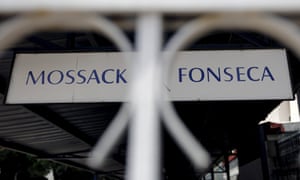
The Panama Papers include records of 214,000 offshore companies, names of real or beneficial owners, and passport scans. There are bank statements, electricity bills and email chains. Often these are between Mossack Fonsecas head office in Panama and intermediaries, typically other lawyers, accountants and banks.
Behind them were a large and diverse group of affluent individuals. We looked, naturally enough, for politicians and those holding public office. But the majority of names in the database belonged to what you might call the non-famous international rich. There were French dentists, Spanish lawyers and Swiss aristocrats, all seeking to minimise their taxes.
The leak led to a year-long international collaboration in 80 countries. Sddeutsche Zeitung shared its material with the International Consortium of Investigative Journalists, which is based in Washington.
The ICIJ in turn gave access to the data to 100 media organisations and nearly 400 reporters. In Britain that was my newspaper the Guardian and the BBC.
The journalists gave the leaked files a name. The Panama Papers was a conscious echo of the Pentagon Papers: volumes of secret documents leaked in 1971 by Daniel Ellsberg which revealed the true US war in Vietnam. Ellsberg swiped a mere 7,000 pages. We had enough reading material to last us about 25 years.
I found myself back in the Guardians investigations bunker. (Actually, it had a bucolic view of Regents canal in London: houseboats, joggers, coots.) In 2013 Id been part of a small group which had studied the Snowden files here. We speculated at the time that MI6 had taken up residence in the flats opposite.
This project was different. By means of a secure platform, called the iHub, journalists were encouraged not to compete with each other but to share information and to swap leads and tips. We did, in a flurry of encrypted emails. There were clandestine reporter meetings in Washington, Munich, and London.
Early on we looked for Trump. Perhaps the database would point us towards his alleged secret fortune? It didnt. I did dig up a Russian businessman escaping from Moscow who wanted to buy an apartment in the Trump Ocean Club tower in Panama City. (The agent knocked off $200,000, offering the Trump penthouse for a bargain price of $2.31m.)
Other themes gradually became clear. Britain, it turned out, didnt just feature via UK Crown dependencies like Jersey, Guernsey and the Isle of Man. Rather, it was the heart of the Mossack Fonseca multiverse. True, many of those diverting funds offshore were located in far-away kleptocracies: Russian oligarchs, African despots, and bagmen for Syrias murderer-president Bashar al-Assad.
But it was British lawyers, banks and company formation agents that were facilitating this global tax avoidance. Often, the enablers were top London law firms. Their websites look eminently respectable: a view of Georgian stucco, offices in exclusive postcodes, a smart Farrow and Ball front door with neatly topiaried trees.
The leaked documents told a different story. Sometimes, the lawyers would lie about their clients identities and connections. Under banking regulations firms were meant to declare if a client was a politically exposed person or PEP. This would lead to stricter checks. The solution was to say nothing in the paperwork about a clients PEP status. In return, big fees.
There may not have been bodies on the streets of Belgravia or Knightsbridge. But it was hard to escape the dispiriting sense that the British were the biggest crooks on the planet. Behind the facade of legal piety we were enabling an orgy of transnational theft, and the looting of entire continents such as Africa.
The California-based French economist Gabriel Zucman estimates that 8% of the worlds wealth $7.6tn (5.3tn) is currently stashed in tax havens. Zucman puts the loss to global tax revenues at $200bn per year. That includes $35bn in the US and $78bn in Europe. What might we do instead with this money?
As President Obama noted tax avoidance was a huge global problem, made worse by the fact that offshore structures are perfectly legal. Many of these havens operate under British jurisdiction. More than half of Mossack Fonsecas companies are registered in the British Virgin Islands, a territory administered from London. The BVI has stubbornly rejected calls for greater transparency. Successive British governments have failed to act.
We spent most of our bunker hours working the big names. They included David Cameron, who features indirectly, as well as a host of other colourful figures including Icelands prime minister and Vladimir Putins KGB-turned-oligarch pals.
The database revealed that the offshore fund run by Camerons late father Ian had paid no British tax. For three decades. The fund, Blairmore Holdings Inc, had gone to absurd lengths to pretend that it was based in the Bahamas, another major tax haven.
It hired a small army of Bahamas residents to sign paperwork. One of them was a part-time bishop. All of this was legal but a pantomime designed to keep Her Majestys Revenue and Customs at bay.
In the run up to publication, slotted for 3 April, we had two worries. One, that our investigation might itself leak. Journalists are a gossipy bunch. Two, that nobody would care. After all, when the Guardian published Snowdens revelations of state spying in 2013 most people in Britain the land of James Bond reacted with a weary shrug.
In the end we neednt have worried. In Iceland the prime minister resigned. In Argentina there were protests. In Azerbaijan a small war suddenly initiated so some believed to distract from revelations featuring the president and his daughters. In China censors blocked the words Panama Papers and jammed the website of the Guardian. In Russia officials fumed about a western spy conspiracy.
Downing Street refused to answer questions about Camerons tax affairs, saying that they were a private matter. Eventually Cameron came clean: hed owned shares in his fathers tax haven fund. He sold them for 31,500 just before becoming prime minister in 2010.
Cameron was reluctant to acknowledge what was obvious: that part of his familys fortune came from privileged offshore wealth.
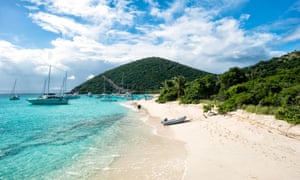
Viewed in retrospect, this was the beginning of the end of Cameron. Weeks later he hosted a global anti-corruption summit in London. He announced a clampdown on offshore havens. The UK would introduce a new register that would compel foreign companies owning British property to declare their owner, thereby cleaning up London as a centre for international money-laundering.
It was a start. But Cameron stopped short of compelling British overseas territories from outing the real owners of offshore firms. Without a public register the offshore industry with its satellites of lawyers and banks was free to carry on as before. The BVI, meanwhile, boycotted the London summit and stayed at home.
The picture, then, is a lousy one. But the Panama Papers offer a few rays of hope. In recent years the Organisation for Economic Co-operation and Development and western governments have tried to clamp down on tax evasion, mindful of the billions being lost during a time of austerity. Pressure has been growing on offshore centres to swap information. Increasingly, the Swiss and others are complying.
All this has induced a degree of paranoia among Mossack Fonsecas well-heeled clients. Emails show that the super-rich have adopted various protective strategies to stop the tax man from knocking. Some of them use fake names. We found Harry Potter, Winnie Pooh and Daniel Radcliffe. (Not the real one.) Plus Isaac Azimov, who turned out to be a tax lawyer from Barcelona.
Offshore agents report that their Italian clients are going to desperate lengths to avoid being caught. When visiting Switzerland they leave the Ferrari behind and take a less conspicuous car. They also seek to cover their trail by layering: using a chain of offshore companies, rather than just one, to bury an asset.
Still, the past six months have seen a victory of sorts for those of us, the little people, who do pay our taxes. From now on, the super-rich and other characters who use exotic offshore structures will be a nervous bunch. How long, they must be wondering, before the next leak?
Read more: https://www.theguardian.com/world/2016/oct/16/taxes-panama-papers-trump-tax-havens